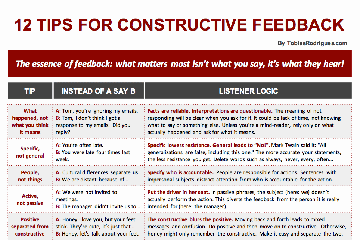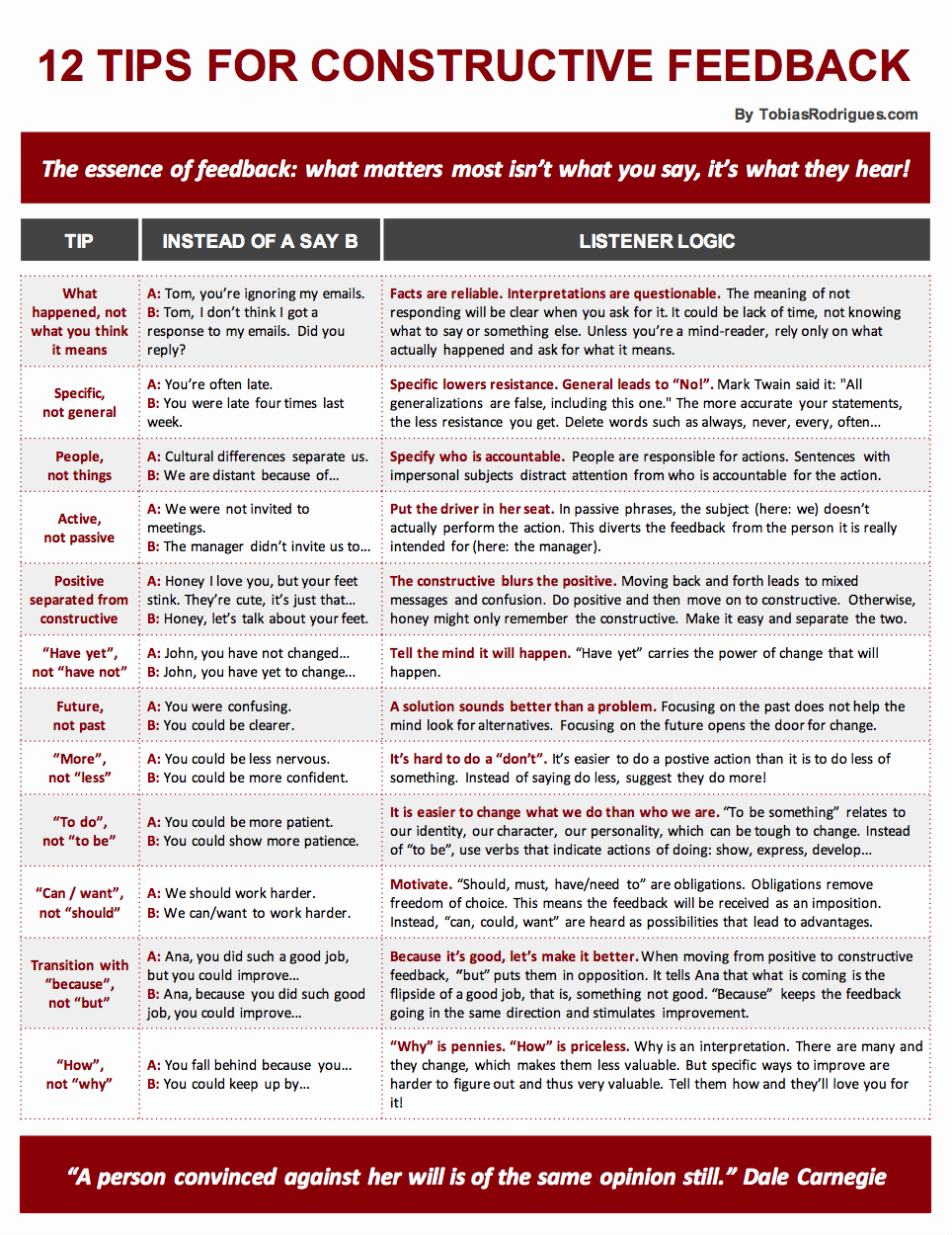Tag: Feedback
12 Tips For Constructive Feedback

Whether a direct report, a manager, a colleague, a friend or a partner, giving constructive feedback is a crucial element of our relationships.
.
How you give feedback
determines how it is received.
I moderate constructive feedback sessions for teams and their leaders, and some patterns prove to be more effective than others. Here’s a set of keys that unlock the doors for constructive feedback to be well received.
Download and discuss them with those you give feedback to.
What matters most
isn’t what you say, it’s what they hear.
So by all means, I’d love to hear your constructive feedback.
Is Your Small Talk SMART?

Last week I attended the 3rd Hola Barcelona Cocktail, an event organized by Barcelona Global to welcome new international professionals arriving in Barcelona.
The purpose is to strengthen the relationship between Barcelonians by birth and Barcelonians by choice. It was lovely. I met wonderful people and conversations were great, which got me thinking: What makes small talk interesting?
The topic is important, but not everything — you can have a pointless conversation about a great topic! The key is HOW we talk.
Make small talk SMART:
Supportive, Meaningful, Authentic, Refreshing, and Tasteful
But, is small talk really that important? After all, it’s just chit-chat, right? Or not? Is there a connection between small talk and other areas of our life?
As a team effectiveness trainer, I often join teams for social events after the training. And for 4 years now I’ve been looking for a connection between the quality of small talk and people’s professional and personal fulfillment. I’ve found one:
Effective leaders and teams engage in smart small talk.
There’s a chance I’m seeing what I want to see, which begs the question: Is there scientific evidence to support my findings? I did some digging and there is.
For instance, Judith E. Glaser has coined the term “Conversational Intelligence” or “C-IQ”, a person’s ability to connect with others through conversations and to jointly think innovatively, empathetically, creatively and strategically.
Judith and the people at Benchmark Communications Inc. have studied the neurochemistry of conversations and shown that managers who “talk smart” are more successful than those who don’t.
So small talk is not just a chit-chat. Smart small talk does make a difference!
Here’s an experiment to spice up conversations at your next event:
- Step One: Identify interesting angles to the conversation, relevant aspects or perspectives that are being overlooked.
- Step Two: Ask a politely provocative question. This will accomplish two things: you’ll get people’s attention and you’ll spark openings for more meaningful dialogue.
- Step Three: Pick a positive message. This is important because you want to contribute to the conversation in meaningful way.
Easy to remember: Angle + Question + Message.
What do you do to keep the small talk smart?


